read
In a world where AI tools have (almost) surpassed traditional search engines, the competition is fierce. Everybody is trying to make the best tool that will give the best answer on the Internet. However, many people fail to realise that AI tools are as good as the detailed instructions you as a real human give them.
In the battle between OpenAI ChatGPT vs Google Bard, ChatGPT wins the popularity contest. However, they do use different language processing models, as well as data sources. For example, Google Bard uses Google's search engine and it will give you a correct answer 9 out of 10 times, while ChatGPT's response may not always give the same answer to the same question. So, when it comes to fact-checking, Google Bard takes the win.
In this article, we will discuss in detail the differences between these two AI chatbots, the language model they use, as well as capabilities and limitations. If you want to learn more about how AI can help you and your business (and how you can avoid it hurting your business), read on!
New to ChatGPT? Here you can explore what ChatGPT is and how it works.
Google Bard vs ChatGPT: Overview
The general public can now finally access Google Bard (but there is a waiting list). Time for a genuine ChatGPT vs Google Bard chatbot side-by-side comparison to see which is better and why.
OpenAI's ChatGPT (Generative Pre-Trained Transformer) is an AI chatbot (not a search engine) that communicates naturally, much like a real person. The GPT-3.5 big language model, which employs natural language processing and is trained via human feedback, is the foundation of this system. It has been trained to anticipate how a sentence would work in a string of words or phrases after studying over 570 terabytes of textual material.
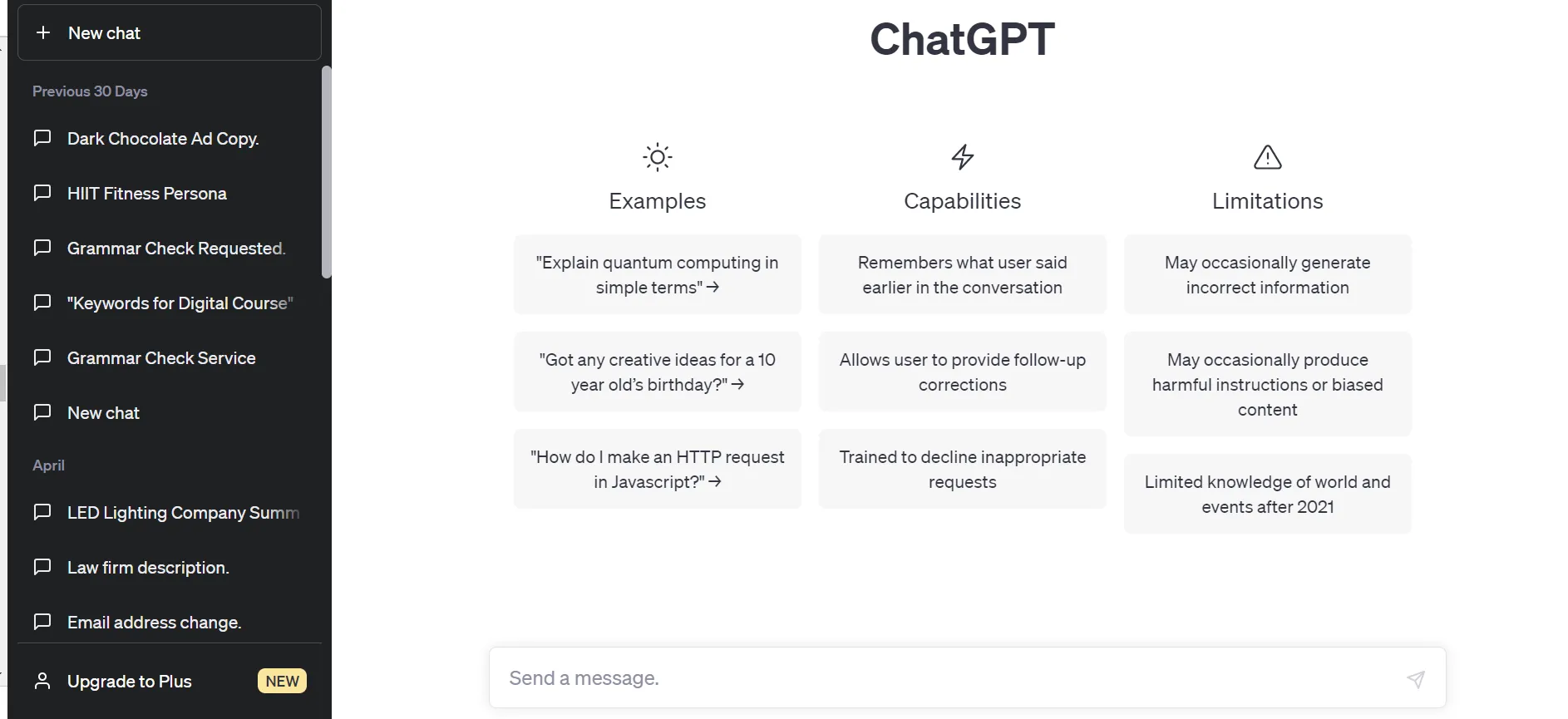
Google countered with Bard, an experimental, conversational, AI chat service. The main distinction between it and ChatGPT is that the information used by Google's service will come directly from the Internet.
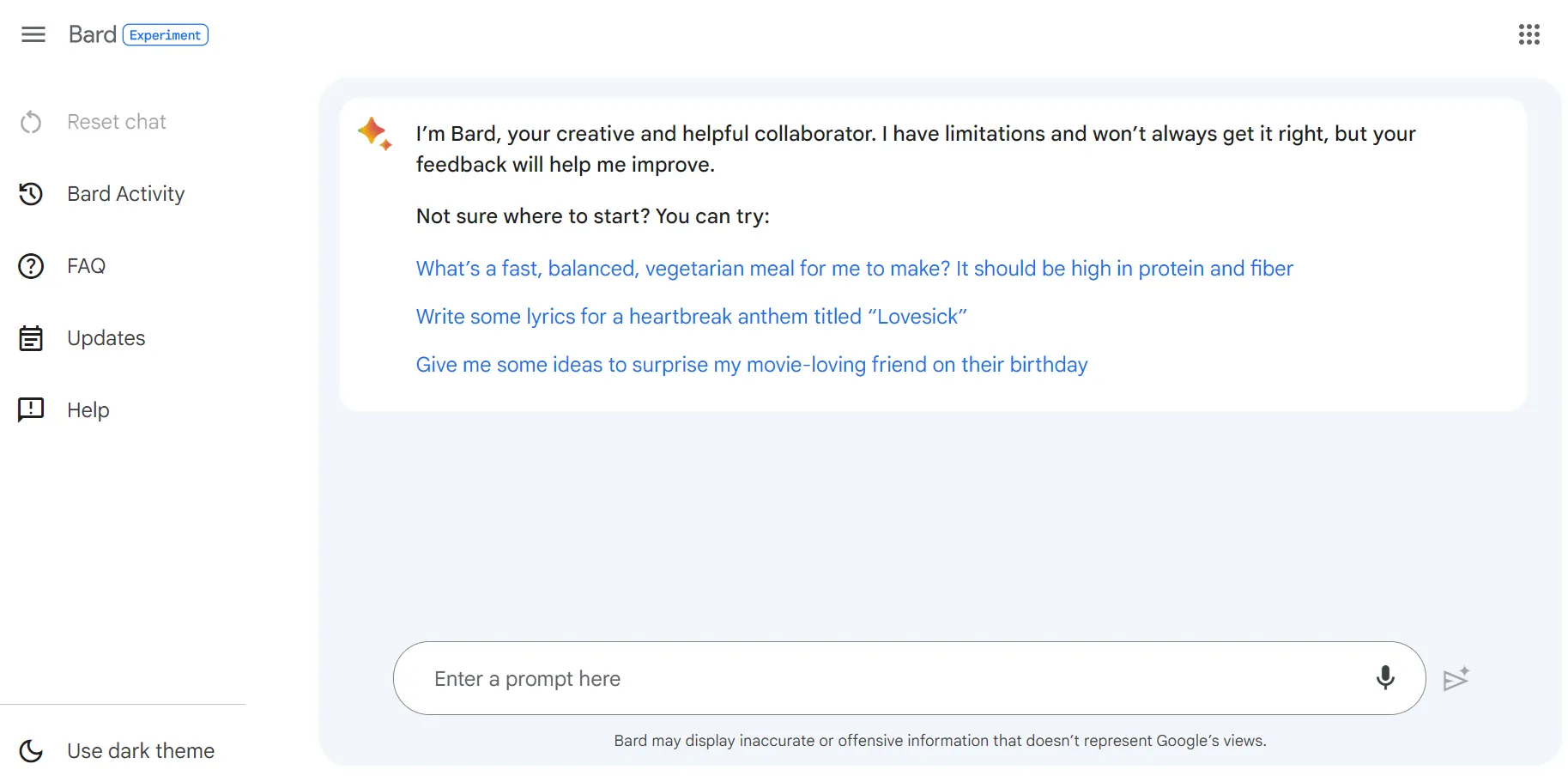
Both chatbots employ natural language models, which lets users provide a prompt or question and have the chatbots give human-like responses.
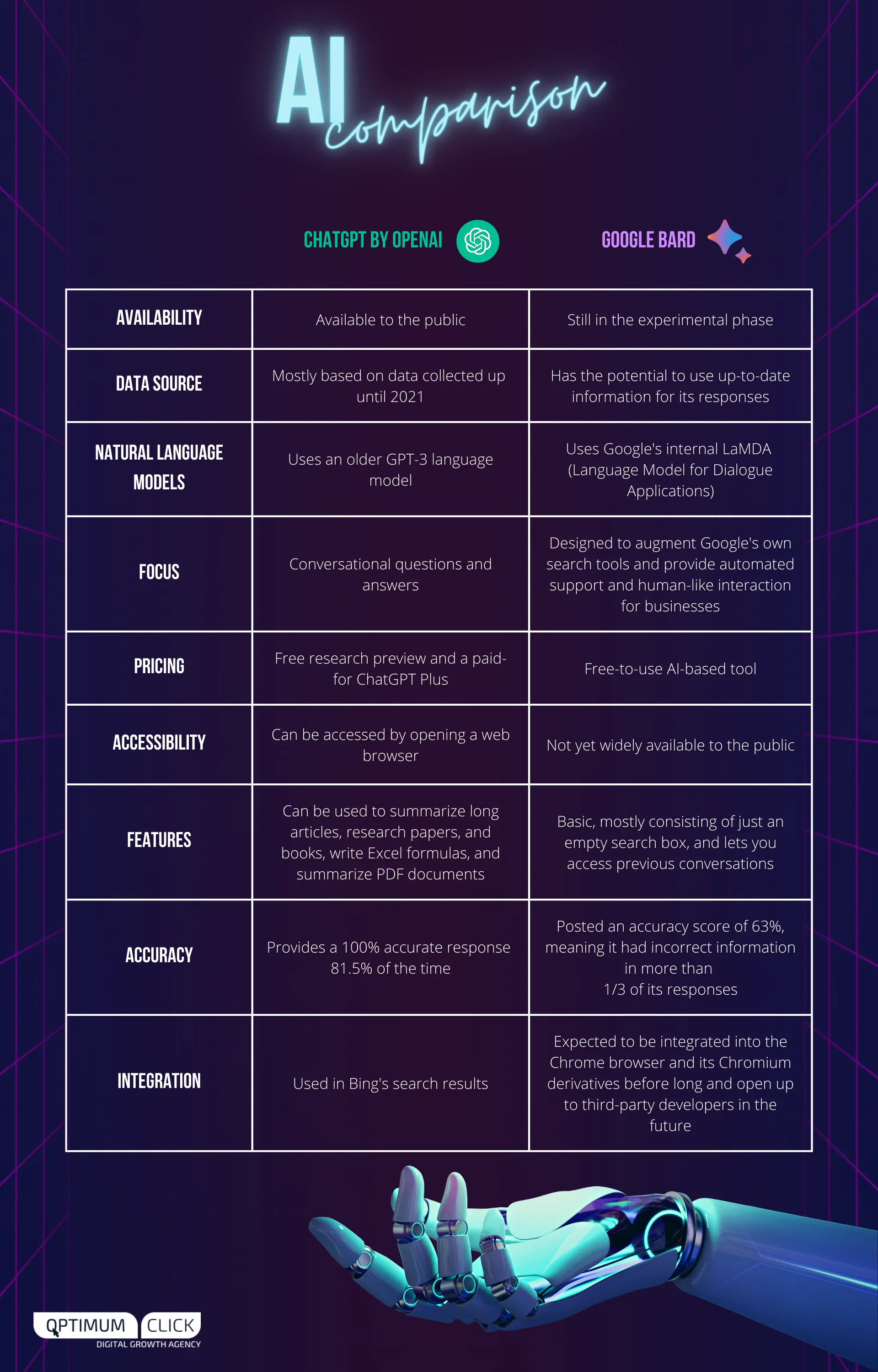
Google Bard vs ChatGPT: Basics and Definition
Let’s take a quick look at each of these tools in summary. First, Google Bard and then ChatGPT.
Google Bard
Definition: Google Bard is an advanced AI language model developed by Google Research. It is designed to understand and generate human-like text based on the input it receives, making it an invaluable tool for content creation, translation, and various other applications.
Architecture: Google Bard is built on the Transformer architecture, which allows it to learn from large datasets and make predictions based on the patterns it identifies in the text.
Capabilities: Google Bard excels in tasks such as summarization, translation, sentiment analysis, and content generation. Its ability to understand context makes it an ideal choice for businesses looking to automate their content creation process.
ChatGPT

Image source: https://research.aimultiple.com/gpt/ - Original source: Chatr
Definition: ChatGPT is a cutting-edge AI language model created by OpenAI. Its purpose is to interpret and produce text that resembles human communication, which makes it a valuable asset for tasks such as content creation, translation, and various other applications.
Framework: ChatGPT is developed using the GPT-4 architecture, allowing it to gain knowledge from extensive datasets and formulate predictions based on the patterns it discerns in the text.
Functionalities: ChatGPT demonstrates exceptional performance in areas such as condensing information, language translation, sentiment evaluation, and generating content. Its capacity to grasp context renders it a prime solution for businesses aiming to streamline their content creation process.
Google Bard vs ChatGPT: Language Model
The Large Language Model (LLM) that each company uses is the essential differentiator that separates Bard from its competition. Bard utilises its own large Language Model for Dialogue Applications (LaMDA) to provide answers based on real-time data and current internet research. This is a pro in this competition, as Bard's response uses the Google search engine to give detailed answers on complex topics that are also true.
Depending on the version you're using, ChatGPT employs its Generative Pre-training Transformer 3 (GPT-3) model, which has been acquired using data from before 2021. Given that chatGPT does not employ a search engine to give the correct answer, it has very limited knowledge of current events, and anything happening post-2021. ChatGPT's latest version, GPT-4, has more extensive context comprehension and reasoning capabilities.
NUTSHELLGiven that ChatGPT believes it is still 2021, the ability of Bard to derive its replies from the internet and include real-time data is rather tempting. Here's an illustration: In addition to summarising the book and discussing how it was received by readers and critics, Bard was able to comment on a 2023 publication.
This is changing, though. GPT Plus subscribers can use the web access beta version. GPT-4 can access the internet at the cost of slower responses. Recent developments push this even further with more general web access, plugins, and more recent coding functions for API calls.
Google Bard vs ChatGPT: Availability and Access
ChatGPT is open to the public. Anyone can access the OpenAI website, create an account, and start chatting. However, access to the latest model is more limited. Also, when the website is busy, access to free users is curtailed. An API key can be acquired. This makes it possible to use ChatGPT in other apps and even create apps that make full use of its capabilities.
Google Bard is still in beta testing and so is not available to the general public. But people can apply to test it. No specific test user requirements apply, so gaining access is really just a matter of filling in a few forms and waiting.
Google Bard vs ChatGPT: Source of Data and Information
This might be the biggest difference between the two chatbots, as it can greatly affect the quality and accuracy of ChatGPT's response. Because OpenAI ChatGPT isn't a traditional search engine or a human being, it will give a different answer that doesn't necessarily contain relevant information or even up-to-date information. Yes, artificial intelligence will give a human-like response, but a quick Google search makes sense if you need to do some content writing, for example.
While Google Bard will do a better job of answering questions, ChatGPT is superior at creating and summarising content.
Both parties have made some well-known errors, but the great thing about AI is that it is always improving.
Google Bard vs ChatGPT: Information Cutoff
ChatGPT's biggest weakness is the fact that its training data was cutoff in 2021. This means its ability to produce factual answers on more recent events is severely curtailed. It's great for creative writing, but if you ask it about more recent events then all you'll get is creative writing.
Bard does better because it connects to the internet and can find more recent information. However, this doesn't mean it will always produce accurate information.
Google Bard vs ChatGPT: Accuracy of Information
Google Bard is often perceived as more precise than ChatGPT in delivering factual and up-to-date information. However, it is essential to note that Google Bard's accuracy score is 63%, indicating that more than a third of its responses contained inaccurate information. In contrast, ChatGPT excels in the accuracy department, providing completely accurate responses 81.5% of the time. ChatGPT also proves to be dependable in summarizing text, crafting Excel formulas, and condensing PDF documents.
NUTSHELLA significant distinction between the two lies in Bard's ability to source its responses from the internet, incorporating real-time data, an appealing feature considering ChatGPT operates under the assumption that it is still 2021.
Google Bard vs ChatGPT: Features
Bard and ChatGPT don't have a long list of 'features' like other forms of software and apps. They are, at heart, chat boxes. But there are some things you will notice as you use them.
ChatGPT features
Character limit of around 4000 characters for input.
Output as much as 2,000 characters, although this may be longer for certain prompts and GPT-4.
Conversation history shown as threads in main user window.
API access allows custom app development.
Large user community with many pre-written prompts.
Google Bard Features
Completely free and open to anyone in the beta trial
Real-time answers to questions and prompts
Comprehensive storage of user prompts, although the responses are not stored
Google Bard vs ChatGPT: Limitations
Both ChatGPT and Google Bard provide detailed answers, but their effectiveness depends on the questions asked and the intended use of the information.
Bard sources information directly from web pages for accurate, up-to-date answers, making it suitable for current events and research. However, Bard has no conversation history, doesn't connect to any other apps or services, and doesn't seem to have the same lookback length of ChatGPT.
ChatGPT, on the other hand, excels in text-based tasks such as content creation but may give broad or ambiguous responses. It also has limitations, like a daily question limit and slower response times for GPT-4.

Google Bard vs ChatGPT: Integration
Comparing integrations is simple because Google Bard has no integrations. ChatGPT is being integrated with every piece of software being developed by anyone with an eye on the future. ChatGPT's capabilities have been picked up and used as Chrome extensions, standalone apps, Google suite add-ons, and more.
The biggest developments in integrations came when Microsoft announced ChatGPT was coming to Bing. Then Office365 got AI assistance. As these tools develop, they will revolutionise the way people work because they will eventually become integrated with everything.
Google Bard vs ChatGPT: Prices
ChatGPT has both a free and paid pricing structure:
The free version can be accessed by opening a web browser and typing in chat.openai.com/chat.
The paid version, ChatGPT Plus, covers usage on chat.openai.com only and costs $20/month. The ChatGPT API costs $0.002 per 1,000 tokens, which are the sequences of messages with metadata that the model consumes. OpenAI is also offering dedicated instances to pay for access to the computing. The ChatGPT API is ten times cheaper than the existing GPT-3.5 models. The Whisper API costs $0.006 per minute (rounded to the nearest second).
“The pricing structure for ChatGPT seems to be evolving, with OpenAI CEO, Sam Altman, tweeting that "we will have to monetize it somehow at some point; the compute costs are eye-watering."
Google Bard vs ChatGPT: UI & UX
Both tools have a similar user interface: a text box. They differ in what they intend users to do with and around that text box.
Bard is an enhanced search bot. So the user can start with a query and check out Bard's response. Follow up questions can be asked easily. More importantly, links to source material are provided so the user can go beyond Bard's answers to the specific websites being quoted.
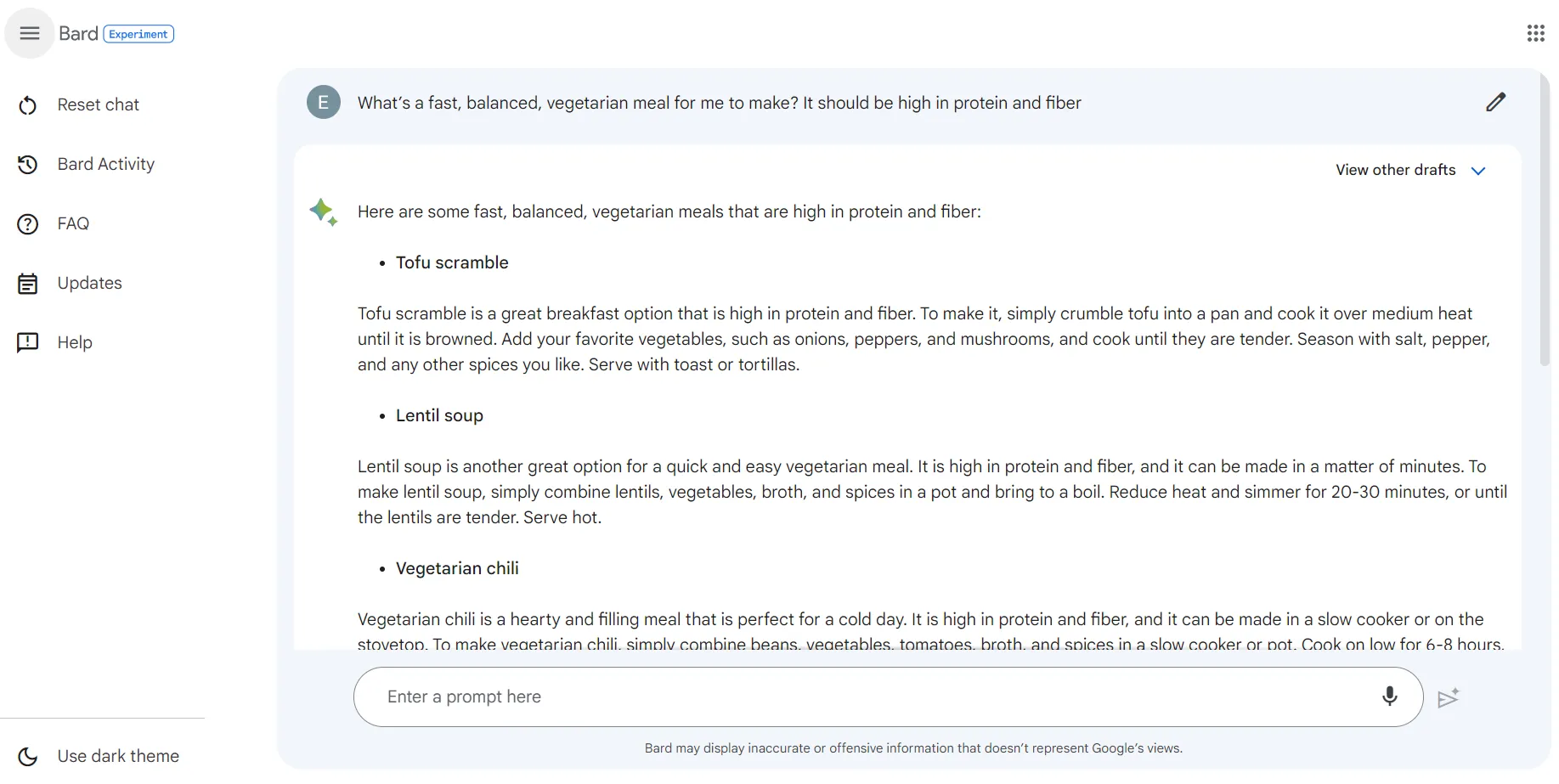
ChatGPT has the same text box, but surrounds it with a user chat thread history. It's much easier to access previous threads and even return to them for specific tasks with prompts that work well.
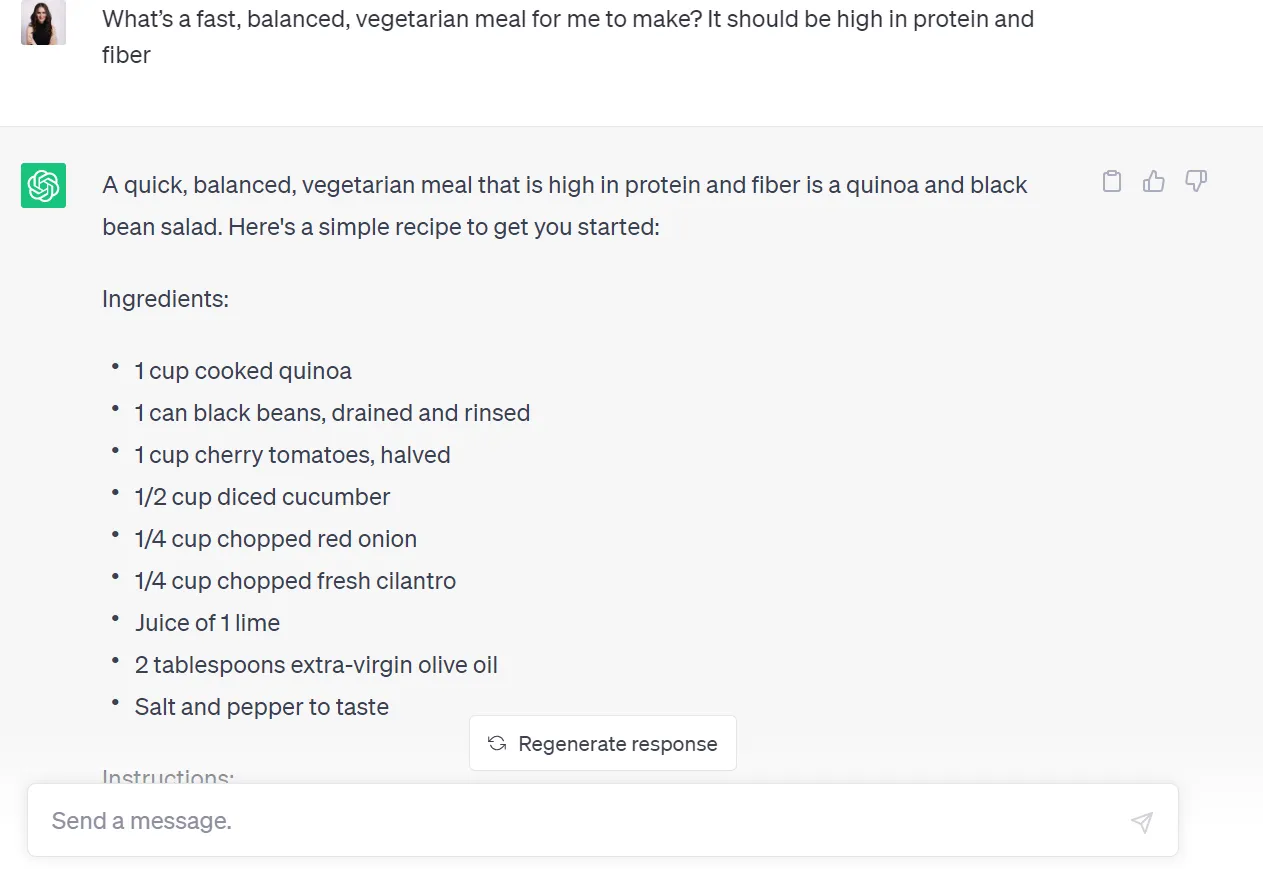
Google Bard vs ChatGPT: The Winner
At this point, ChatGPT wins in almost every way because of its improved user interface, community, and integrations.
The user interface, while a little basic, is clear and easy to interact with. The ChatGPT history is a great way to keep track of answers and return to successful prompts. For example, a writer who has to write meta descriptions can simply return to a meta description writing thread when they need another one.
Many people have developed prompts for ChatGPT to perform all kinds of functions. Entire Reddit groups, websites, and subscription apps have appeared with 'curated' ChatGPT prompts.
The vast and growing number of integrations available for ChatGPT make it far more useful than Bard. Sure, Bard is more up-to-date at first glance. But integrations like perplexity.ai make it easy to bring more recent data to ChatGPT.
AI tools will undoubtedly continue to evolve. They may even be on a trajectory to become SkyNet and take over the world. In the meantime, we can expect them to continue to become more and more useful to us.
Conclusion
Given how both chatbots are in the early days, it is only natural that they will be used for multiple purposes and real-life applications, as they grow and develop, or --- learn. Both are already performing outstandingly, giving detailed answers to complex questions.
ChatGPT and Google are both great chatbot assistants, each with its own advantages and disadvantages. Google's automated assistant is more accurate, but ChatGPT has some impressive features that make it stand out from the competition.
Ultimately, deciding which one is best for you depends on your needs and preferences. No matter which option you choose, rest assured that you will have a powerful tool to help manage your conversations online in no time at all.


